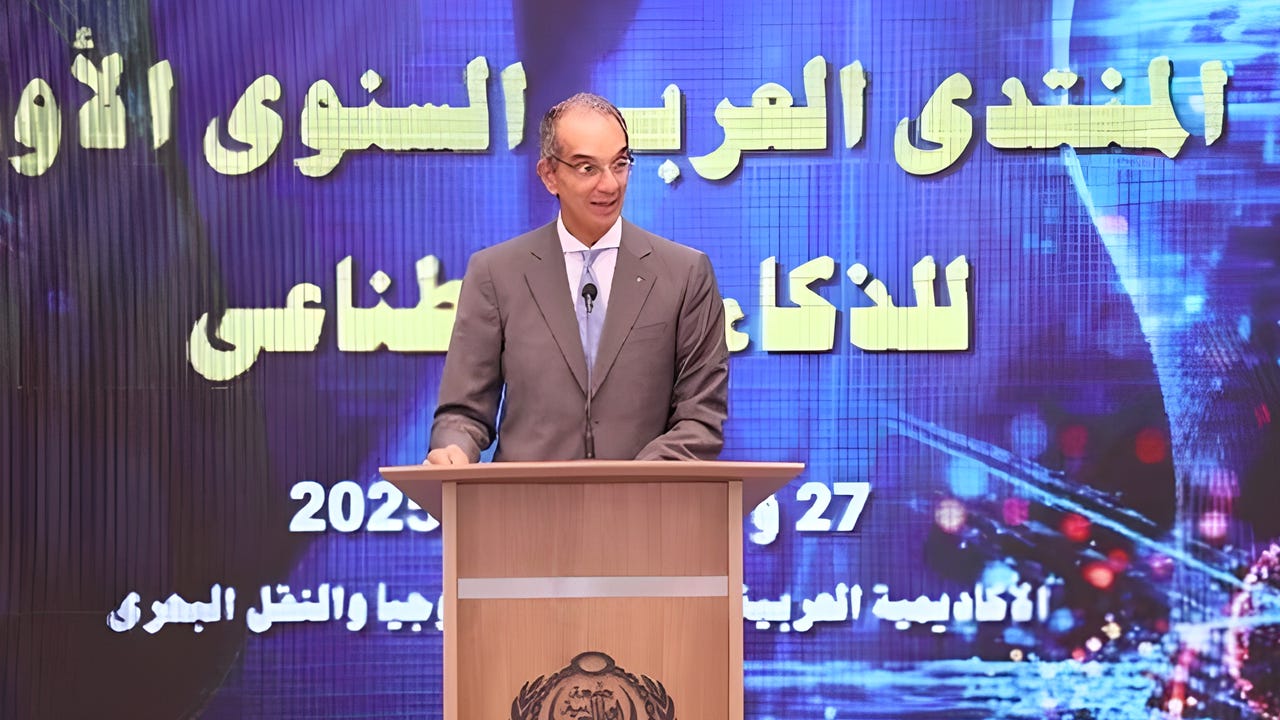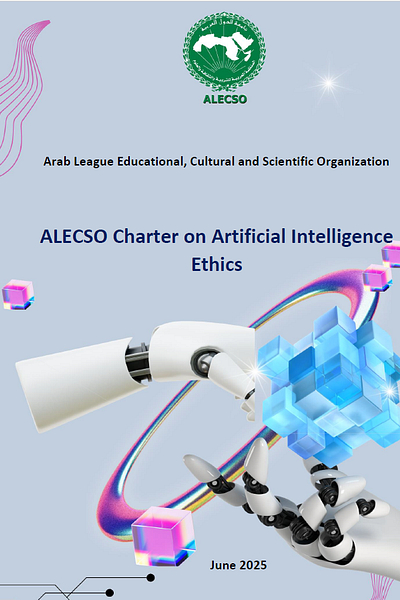Egypt proposes Arab AI Council to unify policies
Egypt CIT minister urges Arab League to unify and strengthen Arab AI policies

#Egypt #policy - Egypt's communications minister Dr. Amr Talaat this week proposed the formation of an Arab Council of Ministers for Artificial Intelligence and Emerging Technologies to unify regional policies and strengthen Arab presence in global AI development. The minister was speaking at the first annual Arab AI Forum in Alamein, organised by the Arab Academy for Science, Technology and Maritime Transport in cooperation with the Arab League General Secretariat. Meanwhile, Arab League Secretary-General Ahmed Aboul-Gheit urged Arab countries to strengthen cooperation in AI and AI research and development. Abou-Gheit also called on Arab states to adopt the league’s AI ethics charter, which was formally endorsed last month.
SO WHAT? - Although the 22-nation Arab League is often accused of discussing issues far more than it acts, the organisation’s AI initiatives do seem to have picked up momentum. The league announced an Arab AI strategy in January, called for an Pan-Arab regulatory framework to be developed in February, and last month approved the ALECSO Charter on Artificial Intelligence Ethics. Dr Talaat’s call to create an Arab AI Council could be timely as most Arab League members now have senior officials appointed to drive their national AI agendas. Considering the significant opportunities and risks posted by AI to Arab culture and the Arabic language, such a council could be considered valuable by many of the leagues members.
Here are some key points about the latest developments:
Egypt's communications minister Dr. Amr Talaat this week proposed the formation of an Arab Council of Ministers for Artificial Intelligence and Emerging Technologies (a.k.a. Arab AI Council) to unify regional policies and strengthen collective influence in in the global AI arena.
The Arab League adopted a unified AI strategy in January 2025 during its 28th Council session hosted by Egypt, establishing a strategic framework committed to by all member nations for artificial intelligence industry development.
The existing pan-Arab AI strategy focuses on building economies capable of contributing locally and globally through AI adoption, enabling individuals and institutions to maximise benefits within strict ethical frameworks aligned with Arab values.
Five main pillars guide the League's AI work: responsible AI charter, innovation stimulation, unified data governance framework, cybersecurity cooperation, and digital infrastructure development to narrow regional digital gaps.
Arab League Secretary General Ahmad Abu Al-Gheit in February called for AI regulatory frameworks aligned with Arab values, emphasising the need for localised AI industries and strategic financial investment in regional capabilities.
The proposed Arab AI Council would build upon existing Arab technology and telecommunications cooperation structures, but bring specific focus to the fast-moving AI sector.
The two-day Arab AI Forum was held in Egypt's coastal city of New Alamein, organised by the Arab Academy for Science, Technology and Maritime Transport
ZOOM OUT - This proposal emerges as governments worldwide establish AI governance frameworks, with the EU's AI Act setting regulatory precedents and the US developing federal AI oversight mechanisms. Regional blocs are increasingly recognising that coordinated AI policies can enhance their global influence whilst preserving cultural values. A number of countries in the Arab world have already identified the potential risks posed by AI to culture, values systems and the Arabic language, which is classified as a ‘low resource language” due to the lack of training data for AI models.
[Written and edited with the assistance of AI]


